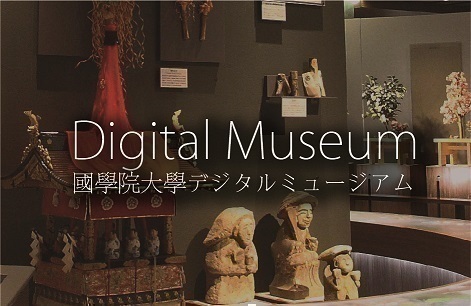- トップ
- Encyclopedia of Shinto
- Shinkokushisō
Encyclopedia of Shinto
| Main Menu: | |
| Links: |
詳細表示 (Complete Article)
| カテゴリー1: | 7. Concepts and Doctrines |
|---|---|
| カテゴリー2: | Doctrines and Theories |
| Title | Shinkokushisō |
| Text | According to this line of thinking, Japan was created by its native kami and its divine creators conferred upon it a special protection. This notion was not originally a chauvinistic one. However, there were occasions when it was used in this way, especially during moments of mounting foreign pressures. Of the classical works including Kojiki, Nihon shoki, Fudoki, and Man'yōshū, the phrase only appears in the section of Nihon shoki concerning a statement by the King of Silla. This statement is also cited in the chronicle of Empress Jingū in Nihon shoki. The statement was not merely made up in Japan, but appears in Korean sources as well, especially the Records of Paekche, in which Paekche requested military assistance from Japan. The statement therefore seems to have been imported from Korean histories into Japanese works. The phrase shinkoku in these sources refers to the "land of the gods." On the Korean peninsula, it was believed that a land of the gods exists overseas to the east. The ancient Japanese people believed that all lands were divinely created, so the idea that only Japan was a shinkoku did not exist originally. The next occurrence of the term shinkoku can be found in the entry dated the twenty-fourth day of the twelfth month of the year 869 in Sandai jitsuroku. At that time, a ship from Silla invaded Hakata Bay. Sandai jitsuroku asks: If there was any fear of Japan as a shinkoku, then why was it attacked? This entry is based on a passage from Nihon shoki. During the latter part of the Heian period, Japan was invoked as a shinkoku and tight defensive measures were therefore deemed unnecessary (cited in the Shunki, dated the twenty-third day of the eighth month of the year 1040). The Daikaihisho claimed that neighboring lands were all cowards (minaoji) who called Japan shinkoku ("land of the gods"). This passage is purportedly also based on the statement made by the king of Silla quoted in Nihon shoki. These Heian occurrences of shinkoku are based on trust in the divine assistance and protection. They express the belief that only Japan is under divine protection. Accordingly, the notion of Japan's special status as the "country of kami" likely began around the time of the compilation of Sandai jitsuroku. The conclusion emerged in Japan during that period that since the kami had created Japan they would protect it. Later, records appeared which make statements like "[Japan] is the shinkoku, so observe religious worship" [the entry for the twenty-ninth day of the tenth month of 1168 in Hyōhanki], and "strictly observe religious rituals" [entry for the eighteenth day of the seventh month of 1201 in Sanchōki]. In addition, it was argued that the unbroken line of imperial descent was due to divine protection and the connection between shinkoku thought and the imperial lineage was emphasized in phrases such as "the seventy-four generations of Amatsuhitsugi" (Hōgen monogatari) and the "ninety generations from the Age of the Gods to the present" (Myōe shōnin denki). Later propagators of shinkoku thought therefore found the exile of emperor Gotoba after his failed rebellion in 1219 against the Hōjō regents unlikely. Furthermore, at the time of the Mongol invasions, a draft of a reply directed at the Mongol leadership rebuked the attackers for attempting to use force against the "land of kami" (from Zōmō kokoku chūsho shōchō). As can be seen from passages like "seeking the release of the divine power" [from Mibu kanmuke nikki shō, entry for the eleventh day of the intercalary seventh month of 1281] and "the kami showed their authority" (from Jinnō shōtōki), it was argued that the ships of the attackers were repelled by what was believed to be kamikaze, winds sent by the kami. Thereafter, people looked back on the failure of these attempts to conquer Japan and the notion of shinkoku spread widely throughout Japanese society. Since the end of the early modern period, when there were increased tensions between Japan and other countries, the ideological character of the notion of shinkoku became stronger. It emerged in particular at the time of the arrival of Commodore Perry's so-called "black ships" and during the Second World War. The theory of the "Japanese spirit, Western talent" (wakon yōsai), "the spirit of Japan" (nihon seishin) and the discourse on the national polity (kokutairon) were all intimately linked to such trends and sought to solidify an awareness of the divine nature of Japan among the people. — Shirayama Yoshitarō |




